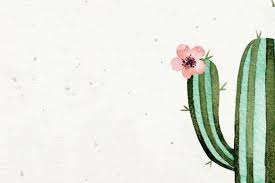
Chinese New Year, also known as the Spring Festival, is one of the most celebrated holidays in China and among Chinese communities worldwide. This festival marks the beginning of a new lunar year, usually falling between late January and early February, and is rich with cultural significance. It’s a time for family reunions, festive feasts, and traditional customs meant to usher in luck, prosperity, and happiness for the year ahead.
One of the key aspects of Chinese New Year celebrations is the poetry that accompanies the festivities. Poetry has long been a part of Chinese culture, and during the New Year season, it is often used to express wishes for good fortune, health, wealth, and happiness. Chinese New Year poems often contain deep symbolic meanings, reflecting the hopes and aspirations of the people as they embark on a new year. In this article, we will explore various poems related to the Chinese New Year and delve into how they are intricately linked to the symbolism of luck.
The Role of Poetry in Chinese Culture
Poetry holds a revered place in Chinese culture, regarded as one of the highest forms of artistic expression. It has been a means of recording history, capturing emotions, and expressing philosophical ideas. Throughout China’s long history, poetry has been used to reflect on the passage of time, celebrate seasonal changes, and convey the collective hopes of the people.
During the Chinese New Year, poetry becomes a vehicle for wishes and blessings. These poems are often composed in formal Chinese verse, using classical meters and structures, and are usually written on red banners (known as couplets or chunlian) that are hung around the home to welcome the new year. The themes of the poems often revolve around good fortune, prosperity, and the desire for an auspicious year ahead.
Common Themes in Chinese New Year Poems
Chinese New Year poems are filled with themes of renewal, happiness, and the promise of good luck. They often draw upon symbols of luck that are commonly associated with the holiday, including animals, flowers, and mythical creatures. Here are some of the common themes found in Chinese New Year poetry:
1. Good Fortune and Prosperity
One of the central themes in Chinese New Year poetry is the hope for a prosperous year ahead. Words such as “wealth,” “success,” and “fortune” frequently appear in these poems. The idea is to wish the reader or the listener an abundance of wealth, both materially and spiritually.
2. Longevity and Health
Another popular theme in Chinese New Year poetry is health and longevity. The Chinese value long life and vitality, and it is common to wish friends and family members a year filled with good health and long life. Phrases such as “May you live a thousand years” or “May you remain strong and healthy” are often expressed.
3. Reunion and Family Harmony
Family is at the heart of Chinese New Year, and many poems center around the importance of family reunions and the harmony within the family unit. In Chinese culture, the New Year is an occasion to reunite with loved ones, so many poems reflect wishes for peace and unity among family members.
4. Good Luck and Happiness
Good luck is an essential aspect of Chinese New Year celebrations. The use of lucky symbols such as the fu character (which means good fortune), the dragon, the phoenix, and the tiger are often present in New Year poetry. These symbols are meant to attract positive energy and good fortune.
5. Nature and the Changing Seasons
The changing seasons are a common motif in Chinese poetry, and during the Chinese New Year, the arrival of spring is celebrated. Poems often praise the beauty of nature, the blooming of flowers, and the return of warmth and vitality with the coming of the new year.
Popular Chinese New Year Poems and Their Symbolism
Chinese New Year poems are often written in a style known as quatrains or jueju (four-line poems). These poems tend to be short and concise but packed with meaning. Below are some popular examples of Chinese New Year poems, along with their symbolism and meanings.
1. “迎春接福” (Yíngchūn jiē fú) – “Welcoming Spring, Welcoming Luck”
This is a classic Chinese New Year poem that reflects the arrival of spring and the wish for good fortune. It is a common theme in many poems:
“迎春接福, 春回大地新, 万事如意心欢喜,幸福常伴身。”
Yíngchūn jiē fú, chūn huí dà dì xīn,
Wàn shì rú yì xīn huān xǐ, xìng fú cháng bàn shēn.
Translation: “Welcome spring and welcome fortune, as spring returns to the earth,
May all things go as wished, bringing joy to your heart, and happiness always by your side.”
This poem symbolizes the renewal of life and the arrival of good luck with the new year. It emphasizes the importance of welcoming spring, which is associated with growth, new beginnings, and the hope for a prosperous year ahead.
2. “花开富贵” (Huā kāi fù guì) – “Flowers Blooming with Wealth”
Another common Chinese New Year poem, especially in the context of a blessing for wealth and prosperity, is:
“花开富贵家兴旺, 财源广进福满堂。”
Huā kāi fù guì jiā xīng wàng,
Cái yuán guǎng jìn fú mǎn táng.
Translation: “With the blooming of flowers, wealth fills the home,
May riches flow and fortune fill the hall.”
The hua (flower) in this poem represents prosperity and wealth. Flowers, particularly the peony, are seen as symbols of good fortune and success. This poem wishes for the flourishing of wealth and the home to be filled with good luck.
3. “岁岁平安” (Suì suì píng’ān) – “May Peace Be with You Year After Year”
One of the most famous and heartfelt wishes during the Chinese New Year is for peace and safety. This short poem is often seen on couplets:
“岁岁平安无灾难, 心心相印愿常安。”
Suì suì píng’ān wú zāi nàn,
Xīn xīn xiāng yìn yuàn cháng ān.
Translation: “Year after year, may you have peace and no disasters,
May your hearts always be in harmony and peace.”
This poem emphasizes the importance of peace and safety in the coming year. The repetition of “year after year” suggests continuity and the desire for enduring peace throughout the seasons.
4. “福到运来” (Fú dào yùn lái) – “Fortune Arrives, Luck Comes”
This poem is often displayed on red banners and embodies the central theme of Chinese New Year: bringing in good fortune and positive energy:
“福到运来财源广, 吉星高照喜满堂。”
Fú dào yùn lái cái yuán guǎng,
Jí xīng gāo zhào xǐ mǎn táng.
Translation: “Fortune arrives and luck comes, wealth flows in abundance,
Good stars shine brightly, and joy fills the hall.”
This poem is a wish for good fortune and prosperity in all aspects of life. It ties in with the traditional belief in lucky stars, and the poem encourages good fortune to shine upon those who read it.
Conclusion: The Enduring Power of Poetry and Luck
Chinese New Year poems are a vibrant part of the celebrations that accompany the festival. These poems are not just beautiful verses but also convey heartfelt wishes for good fortune, health, wealth, and peace. They serve as a reminder of the importance of family, tradition, and the constant hope for a better future.
The themes of luck and prosperity in these poems reflect the values and aspirations of the Chinese people, who believe that the new year is an opportunity for renewal and for attracting positive energy. As people around the world continue to celebrate Chinese New Year, these poems remain a cherished tradition, bringing joy, inspiration, and good fortune to all who read them.









